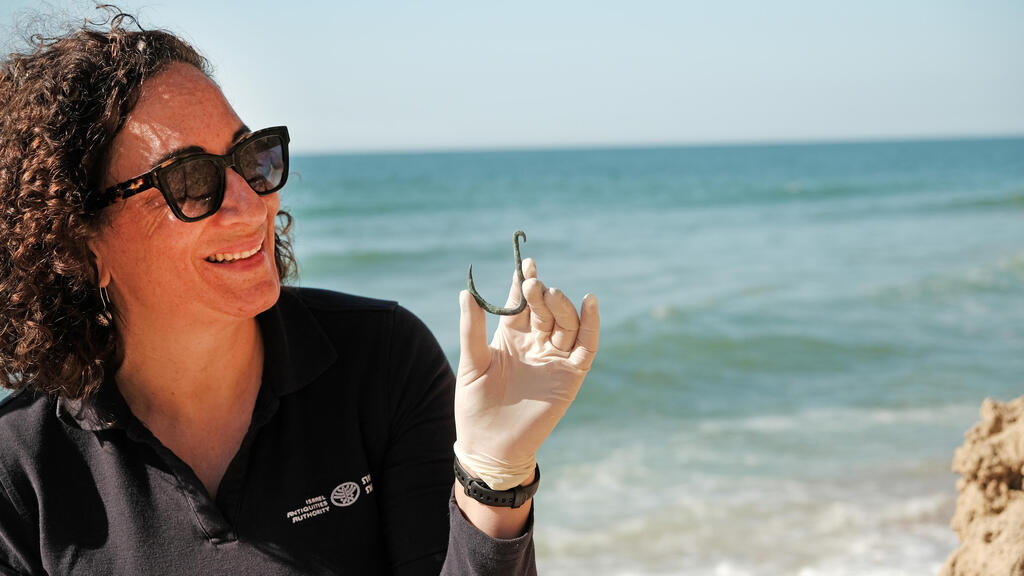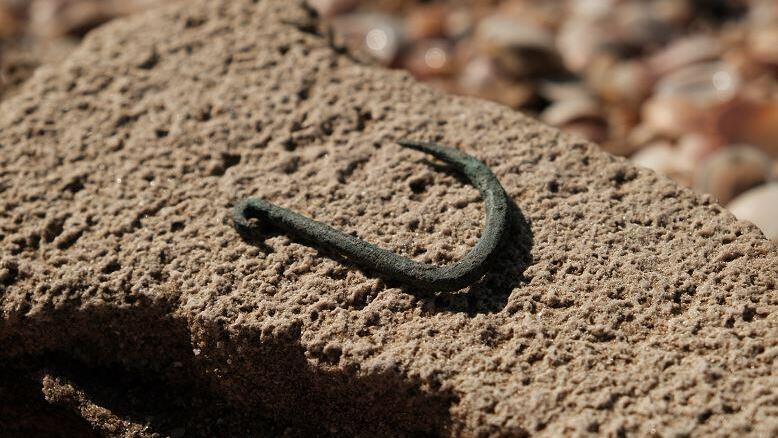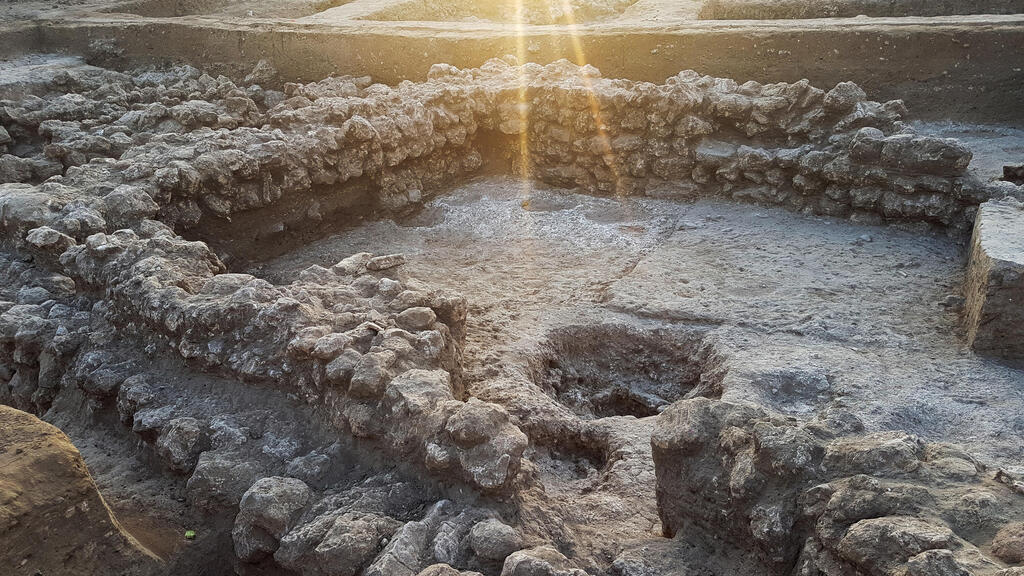6,000-year-old copper hook found in Israel
(Video: Emil Aladjem, Israel Antiquity Authority)
Archaeologists in Israel have discovered a rare artifact that could be one of the oldest fishhooks in the world. The 6,000-year-old copper fishhook was unearthed during excavations carried out by the Israel Antiquity Authority ahead of the construction of a new neighborhood in Ashkelon in 2018.
- Related Stories: Ancient artifact discovered during police drug raid
The hook, which is believed to have been used for fishing sharks or other large fish, has never been presented to the public before and will be displayed for the first time at Israel’s 48th Archaeological Congress in April.
The find was presented by Dr. Yael Abadi-Reiss, co-director of the excavation, and Dr. Daniel Varga, both from the Israel Antiquity Authority. “This unique find is 6.5 cm long and 4 cm wide, its large dimensions making it suitable for hunting 2–3 m long sharks or large tuna fish. More ancient fishhooks found previously were made of bone and were much smaller than this one.”
“The use of copper began in the Chalcolithic period and it is fascinating to discover that this technological innovation was applied in antiquity for the production of fishhooks for fishermen along the Mediterranean coast,” Abadi-Reiss explained.
During the Chalcolithic period, Ashkelon was surrounded by sizable settlements that relied on agricultural practices still prevalent in modern times. These communities sustained themselves through livestock rearing, including sheep, goats, and cattle, as well as cultivating crops such as wheat, barley, and legumes, and managing fruit orchards.
“We learn about the dietary habits of the people who lived here 6,000 years ago from the remains of animal bones found in ancient rubbish pits, from burnt wheat grains found in ovens, and from the hunting, cooking and food-processing tools retrieved, including flint sickles, and a variety of pottery vessels that served for the storage, cooking and the conservation of food by fermentation and salting.”
“The rare fishhook tells the story of the village fishermen who sailed out to sea in their boats and cast the newly invented copper fishhook into the water, hoping to add coastal sharks to the menu,” Dr. Abadi-Reiss said.
Dr. Yotam Asscher and Magda Batiashvilli, both from the Israel Antiquity Authority, are conducting research on the copper fishhook. Thanks to advanced technologies available to contemporary scholars, fresh insights into this intriguing artifact are now possible, answering questions that were once beyond reach.
The extraordinary discovery will be showcased for the very first time at the 48th Archaeological Congress, organized jointly by the Israel Antiquity Authority, the Israel Exploration Society, and the Israeli Archaeological Association. The Congress, scheduled for April 3, 2023, promises to be an exciting platform for presenting and discussing ground-breaking research in the field.
According to Israel Antiquity Authority Director Eli Escusido, the upcoming 48th Archaeological Congress, to be held in Jerusalem, will be a momentous occasion for the Israel Antiquity Authority.
The Congress will take place at the new Jay and Jeanie Schottenstein National Campus for the Archaeology of Israel and will provide a venue for a gathering of archaeologists and scholars from around the world.
During the Congress, a state-of-the-art visitors’ center will be opened to the general public, allowing them to witness the behind-the-scenes activity that characterizes Israel’s extensive archaeological work.
According to the Israel Antiquity Authority, it’s eager to showcase Israel’s rich heritage to the world, with the upcoming congress being a great opportunity to do so.






